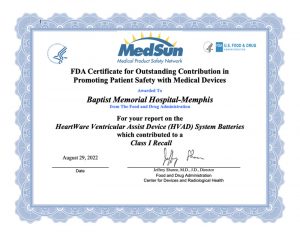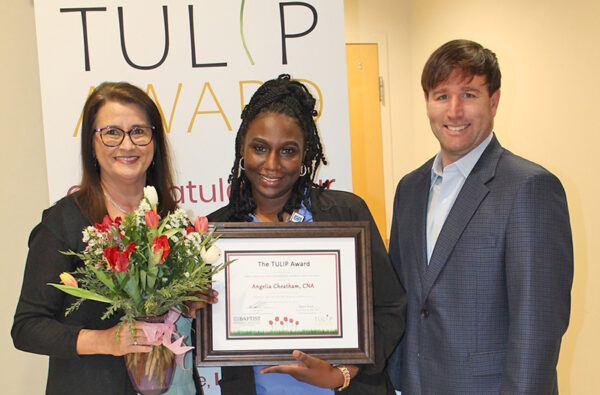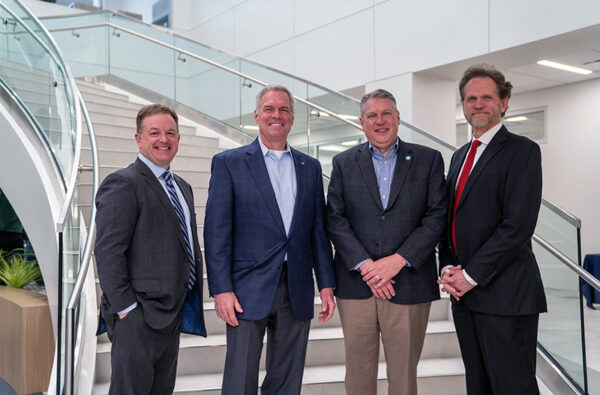A Medical Product Safety Network (MedSun) report from Baptist Memphis contributed to a significant safety action taken by the U.S. Food and Drug Administration (FDA) this summer. MedSun is the FDA’s Center for Devices and Radiological Health (CDRH) adverse event reporting program. Dr. Jeffrey Shuren, director of the CDRH, signed the certificate given to Baptist Memphis to recognize the hospital’s contribution to a Class I recall of the HeartWare Ventricular Assist Device (HVAD) System Batteries from Medtronic. The Ventricular Assist Device (VAD) team at Baptist Memphis worked together to call the safety problem to the attention of the FDA.
A Class I recall is the most serious type of recall, and devices with this recall are taken off the market immediately, as their use may result in serious injuries or death.
Baptist Memphis VAD Coordinator Nathaniel Cleaves, RN, BSN, first noticed the pattern of safety issues with HVAD batteries and triggered the first Online Survey Certification and Reporting (OSCAR) reports, which began the investigation that ultimately helped lead to the recall.
“I participated on a conference call with Medtronic executives and Baptist leadership to make them aware of this issue with the device and the potential safety concerns we were seeing. Medtronic stated at the time that no other center had reported the problems. This is likely because we had a much higher HVAD patient population than other centers. That gave us a greater chance of seeing the issue more frequently and recognizing the pattern as more than isolated events,” said Nathaniel.
Baptist Memphis VAD Coordinators Anthony Brown, RN, BSN, and Kelly Acheson, RN, were also instrumental in noticing and reporting issues related to the HVAD batteries.
A VAD is a mechanical circulatory device that helps pump blood from the lower chambers of the heart to the rest of the body.
“Our VAD coordinators started seeing a pattern. They didn’t sit on that pattern. They went through the channels that are existing at Baptist to escalate that rapidly to perform an internal investigation,” said Dmitry Yaranov, MD, a cardiologist with Baptist Medical Group.
Dr. Yaranov, who specializes in heart failure, advanced heart failure, heart transplantation and mechanical circulatory support, commends the VAD coordinators for starting the process that led to the HVAD recall and getting Baptist Risk Management engaged at an early stage. He said the recall changes the “whole paradigm of hardware devices for the rest of the world, not just the country.”
The recall also impacts patients with HVADs who are waiting on a heart transplant. “Patients who are supported with this type of device get an urgent priority on the wait list for a heart transplant,” said Dr. Yaranov.
Dr. Yaranov explained that it’s been recognized for about a decade now that with heart failure, it’s not the surgeons or the cardiologists who make the difference for a successful outcome, but it’s the team of people who work together.
“This story underscores that the people who know the patients best may not be the physicians or the surgeons, but the coordinators who take care of those patients 24/7. They have duties in the clinic and the hospital. It doesn’t matter where this patient goes in the hospital, the VAD team coordinates their care throughout the health care system,” explained Dr. Yaranov.
“We’re here for our patients and do whatever we can to help them have a better quality and quantity of life,” said Anthony.







